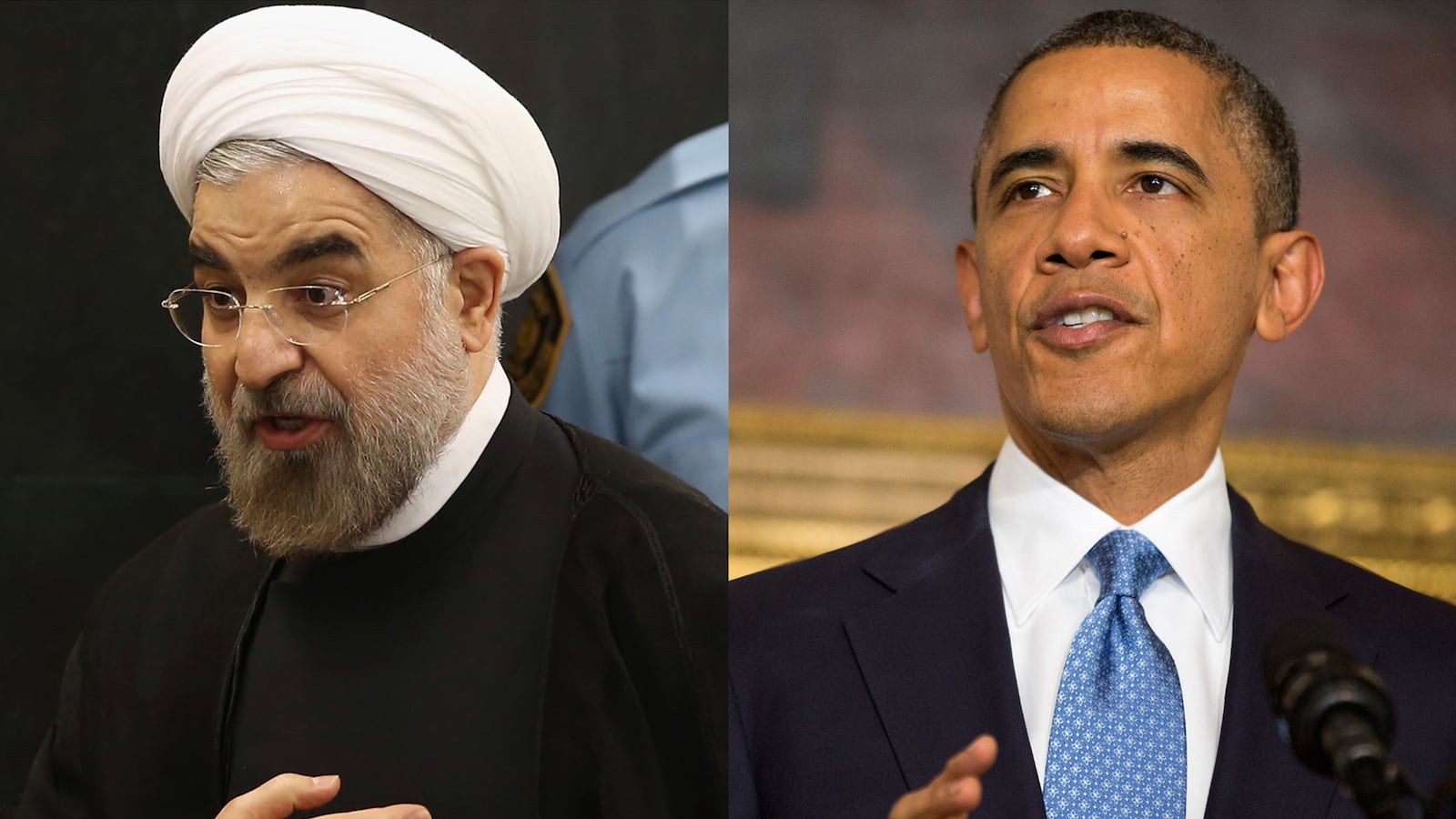The Obama team has won the first round on the six-month agreement with Iran by a knockout. The phony, misleading, and dishonest arguments against the pact just didn’t hold up to the reality of the text. As night follows day, the mob of opponents didn’t consider surrender, not for a second. Instead, they trained their media howitzers on the future, the next and more permanent agreement, you know, the one that has yet to be negotiated.
The Saudis lost most gracefully. They simply said this step has been taken and they’ll see about the next one. The Israelis lost most tendentiously. Prime Minister Bibi Netanyahu called the interim arrangement “a historic mistake.” His minions went further to say that, in retaliation, Israel might well just trash the ongoing private negotiations with the Palestinians, probably the last chance for a treaty in Obama’s tenure.
More creatively, American neoconservatives and conservatives are now contending that with his first round, Obama has mortgaged America’s future security, conceded Iran’s right to a nuclear capability in the second dance, and lost all U.S. leverage. In sum, while the president may not have lost the first round, he has inevitably set the stage for doom in the talks to come.
To be sure, it is much harder to argue against what has not happened than what has, and the anti-negotiating hawks know that very well. They are well aware that they have Obama on the political ropes generally, or that he has put himself there. Critics are thus hitting alarms on the Obama security policy that ring true in domestic politics. He offended genuine foreign policy sensibilities by drawing a “red line” in Syria, then abandoning it. He has worried most American friends in the dangerous Mideast by initially being for, then being against, the so-called Arab democratic Spring and by an ill-defined “pivot” to Asia. And Obama badly needs to get his strategic act together in the region to clarify these legitimate worries.
But in no way did the six-month semi-freeze on Iran’s nuclear program concede any future right to Tehran to do anything, let alone make it easier for Iranians to make nuclear weapons. U.S. negotiators specifically stated they were not bowing in any way or form to Iranian rights in this matter. The Iranian negotiators sometimes seem to claim this victory. But they more or less have to; they have little else to show for their Geneva efforts. This was their “rabbit,” nothing more. And those familiar with modern day bargaining realize that any such American concessions would have been leaked a thousand times over by now.
As for Obama having lost his negotiating leverage on economic sanctions, that is pure nonsense. He gave the Iranians a few billion of their own frozen dollars. U.S. oil and financial/banking sanctions remain almost fully intact. And these are the sanctions that have been deeply damaging to Iran’s economy. Indeed in most cases, the president cannot unilaterally lift these sanctions. It takes Congressional assent. And everyone knows this will be hard to get unless Iran concedes an awful lot. Some wise heads worry that other countries and businesses will rush to restart oil and other transactions with Iran. That might happen to some degree, but many nations have their own sanctions and are party to UN sanctions that will prevent doing much with Tehran in the next six months.
There is some fair concern that Obama may well have undercut his military threats against Iran. His standard position has been and should be that all options are on the table, meaning military ones as well. But in a recent public excess he added these words: “I'm going to do every single thing that I can to try to resolve these issues without resorting to military conflict.” One can only hope that he will not repeat this unfortunate addendum.
What, then, are the hawks really trying to do? It’s obvious—their old tried and true game of backing Obama into a negotiating hole from whence he can’t make any significant compromises without great political cost, so that the price of a new accord is too high. Good tactics.
Obama will need a strategy to overcome this hawkish cornering campaign. He’ll have to devise one now, not in six months when the next round is completed. Then it will be too late, as usual. By then, the critics will have already clouded men’s minds (women are less susceptible). The starting place is to play up the first round victory. His archers need to pierce the last standing hearts of the mob, those who persist in whimpering to all-too-eager cable news channels that Obama made disproportionate concessions in the interim pact to the Iranian devils. Yes, there were disproportionate compromises made—by the Iranians. They froze, to greater and lesser degrees, virtually all of their nuclear programs. And critically for Western intelligence, Tehran also agreed to vast new inspections of their nuclear facilities by international experts. In return, the U.S. agreed to provide around $7 billion in sanctions relief. This is first rate bargaining by the American side. Let Americans know. Then, start setting the measuring sticks for the next round; don’t let the mob do it.
Washington could well end up tightening sanctions, or worse, after a failed next round, if Iran moves toward nuclear breakout. But the Obama team has made a first class start. Now, they must press their advantages and take the field aggressively. Now.






